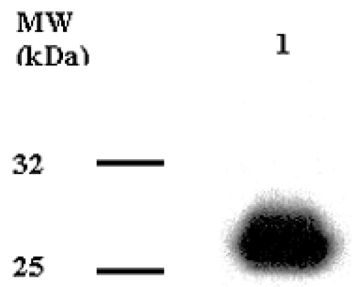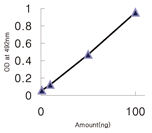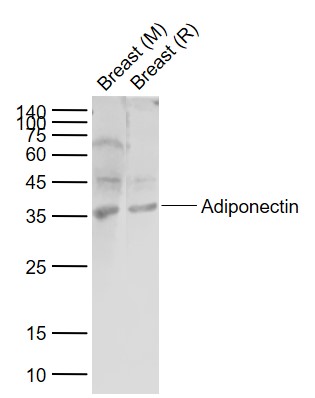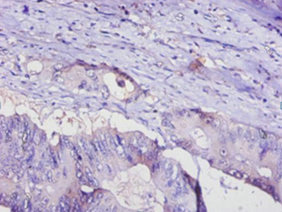
Monoclonal antibody to adiponectin (GTX16086) detects human ACRP30headless (tail of adiponectin) by Western blot
Adiponectin antibody [Ne.Na]
GTX16086
ApplicationsImmunoPrecipitation, Western Blot, ELISA
Product group Antibodies
ReactivityHuman
TargetADIPOQ
Overview
- SupplierGeneTex
- Product NameAdiponectin antibody [Ne.Na]
- Delivery Days Customer9
- Application Supplier NoteELISA: Use at an assay dependent dilution. IP: Use at an assay dependent dilution. WB: Use at a concentration of 1 microg/ml. Predicted molecular weight: 29 kDa. Optimal dilutions/concentrations should be determined by the end user.
- ApplicationsImmunoPrecipitation, Western Blot, ELISA
- CertificationResearch Use Only
- ClonalityMonoclonal
- Clone IDNe.Na
- Concentration1 mg/ml
- ConjugateUnconjugated
- Estimated Purity>95%
- Gene ID9370
- Target nameADIPOQ
- Target descriptionadiponectin, C1Q and collagen domain containing
- Target synonymsACDC, ACRP30, ADIPQTL1, ADPN, APM-1, APM1, GBP28, adiponectin, 30 kDa adipocyte complement-related protein, adipocyte complement-related 30 kDa protein, adipose most abundant gene transcript 1 protein, adipose specific collagen-like factor, gelatin-binding protein 28
- HostMouse
- IsotypeIgG1
- Protein IDQ15848
- Protein NameAdiponectin
- Scientific DescriptionThis gene is expressed in adipose tissue exclusively. It encodes a protein with similarity to collagens X and VIII and complement factor C1q. The encoded protein circulates in the plasma and is involved with metabolic and hormonal processes. Mutations in this gene are associated with adiponectin deficiency. Multiple alternatively spliced variants, encoding the same protein, have been identified. [provided by RefSeq, Apr 2010]
- ReactivityHuman
- Storage Instruction-20°C or -80°C,2°C to 8°C
- UNSPSC41116161







